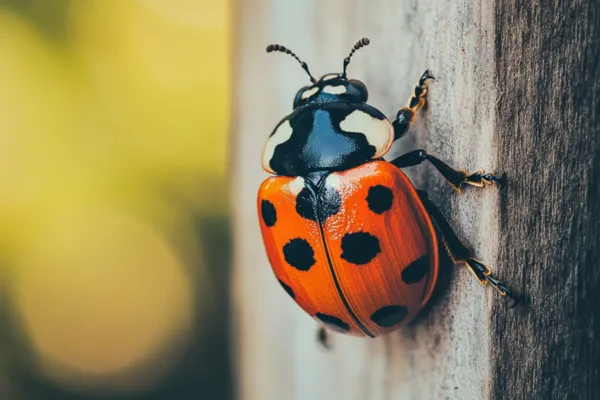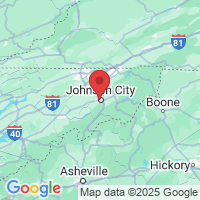The Shield Pest Journal
Check out Shield Pest Appalachia’s most recent blog posts for helpful pest prevention and control suggestions. Our blog covers from detecting common pests to creating tailored solutions in the Tennessee and Virginia areas. Do you have a pest-related question? Contact us today for experienced guidance and solutions targeted to your specific needs.

Wrapping Up the Year Pest-Free: New Year’s Pest Resolutions
The Importance of Year-Round Pest Control
While pests are often a concern during warmer months, they can invade your home during the winter too, seeking shelter from the cold. By establishing a year-round pest control plan, you ensure continuous protection against these unwanted invaders, reducing the chances of infestation and associated damages.
Regular Inspections
Schedule quarterly inspections with a professional pest control service like Shield Pest Appalchia. Regular checks can catch early signs of infestation, allowing for prompt and effective treatment before pests become a larger problem.
Seasonal Preparation
Each season brings different pest challenges; thus, tailoring your approach is crucial:
Winter: Focus on sealing cracks and gaps where pests might enter as they seek warmth.
Spring: Address standing water and trim overgrowth to prevent breeding grounds for insects.
Summer: Intensify efforts around moisture control and food storage to deter ants, flies, and rodents.
Fall: Prepare for overwintering pests by reinforcing entry points and reducing clutter where pests could hide.
Integrated Pest Management (IPM)
Implementing IPM strategies involves not just chemical treatments but also cultural, mechanical, and physical methods to manage pests. This could include modifying your landscape to be less attractive to pests, using traps, and selecting pest-resistant varieties of plants.
Smart Home Practices for Pest Prevention
Adopting smart home practices can significantly aid in keeping your home pest-free:
Maintain a Clean Environment
Keeping your home clean is the first line of defense:
Regularly dispose of garbage in sealed receptacles.
Store food in airtight containers.
Reduce clutter where pests can hide.
Moisture Control
Many pests are attracted to moisture:
Fix leaky faucets and pipes.
Use dehumidifiers in damp areas like basements.
Ensure good drainage around the exterior of your home.
Proper Storage Solutions
Storing items properly can prevent pests from finding harborage:
Use plastic bins instead of cardboard boxes, which can attract pests like cockroaches and silverfish.
Regularly inspect storage areas and keep them organized to avoid pest hiding spots.
Engage With Professionals
While DIY methods are helpful, the expertise of professionals like Shield Pest Appalachia provides peace of mind:
Professionals have access to more effective treatments and can offer customized solutions based on your specific needs and local pest pressures.
They can handle dangerous pests, such as venomous spiders or aggressive rodents, safely.
Pest-Specific Strategies for Year-Round Control
Navigating pest control can be daunting, but focusing on pest-specific strategies can make this task manageable and more effective. Here’s how to tackle different types of pests throughout the year:
Rodents: Utilizing Traps and Sealing Entry Points
Rodents seek shelter especially as the weather cools, making late fall and winter ideal times to fortify your home:
Trapping: Set traps along walls and near potential food sources. Use a variety of traps, such as snap traps for immediate effectiveness and live traps if you prefer a catch-and-release method.
Sealing Entry Points: Conduct a thorough inspection of your home's exterior. Seal any cracks or openings with steel wool and caulk, especially where utility lines enter, as these are common entry points for mice and rats.
Insects: Natural Deterrents and Safe Pesticide Use
Insects can be a year-round nuisance, but natural deterrents and careful pesticide use can keep them at bay:
Natural Deterrents: Use essential oils like peppermint, citronella, or eucalyptus to repel insects. Apply these oils at entry points and around the perimeter of your home.
Safe Pesticides: If you choose chemical interventions, opt for pesticides that are environmentally friendly and safe for use around children and pets. Always follow the manufacturer's instructions to minimize risk.
Seasonal Pests: Targeting Specific Threats
Some pests are more prevalent during certain seasons, requiring targeted strategies:
Summer Mosquitoes: Eliminate standing water where mosquitoes breed. Consider installing nets or using mosquito repellent devices around your home to keep these pests away.
Fall Stink Bugs: Seal windows and doors tightly as stink bugs seek entry points to overwinter. Vacuum any stink bugs indoors as crushing them releases an unpleasant odor.
Pet Safety and Pest Control: Protecting Your Furry Friends
Here’s how you can keep your pets safe while effectively managing pests in your home:
Choosing Pet-Safe Products
Pet-Safe Repellents: Opt for natural repellents that are known to be safe around pets. Ingredients like lemon eucalyptus oil, vinegar, and citronella are effective against pests and generally safe for pets when used correctly.
Read Labels Carefully: Always check the labels of pest control products to ensure they are safe for use around animals. Avoid products with chemicals known to be toxic to pets, such as permethrin, which can be particularly harmful to cats.
Application Precautions
Application Timing: Apply chemicals or set traps during times when your pets are less likely to be in the treatment area, such as during walks or while they’re contained in another part of the home.
Secure Access Points: Ensure that pets cannot access areas where pest control products have been applied until it is safe. This might mean physically barring entry to certain rooms or using pet gates.
Natural and Mechanical Methods
Physical Barriers: Employ physical pest control methods like fly screens on windows or door sweeps that prevent pests from entering while being completely safe for pets.
Maintaining Cleanliness: Regularly clean pet bowls, bedding, and play areas to reduce the likelihood of pest attractions without the need for chemicals.
Monitoring and Maintenance
Watch for Reactions: After applying any pest control product, watch your pets for any signs of distress or allergic reaction. Symptoms like excessive scratching, respiratory problems, or unusual lethargy warrant immediate veterinary attention.
Regular Vet Check-ups: Maintain regular vet visits to check for fleas, ticks, and other parasites, especially if your pets spend time outdoors.
Educate Yourself and Your Family
Education is a powerful tool in pest prevention. Understand the signs of infestation, the seasonal pests common in your area, and preventive measures. This knowledge can empower every family member to act promptly and effectively to minimize pest risks.
Foster Community Awareness
Pests can travel from neighboring properties, so community involvement is crucial:
Participate in local clean-up days to reduce neighborhood-wide pest attractants.
Share pest prevention tips with neighbors to collectively reduce the risk of infestation.
For more information or to schedule your first inspection, visit Shield Pest Appalachia’s website. Here's to a healthy, happy, and pest-free New Year!
Copyright 2024. All Right Reserved.

